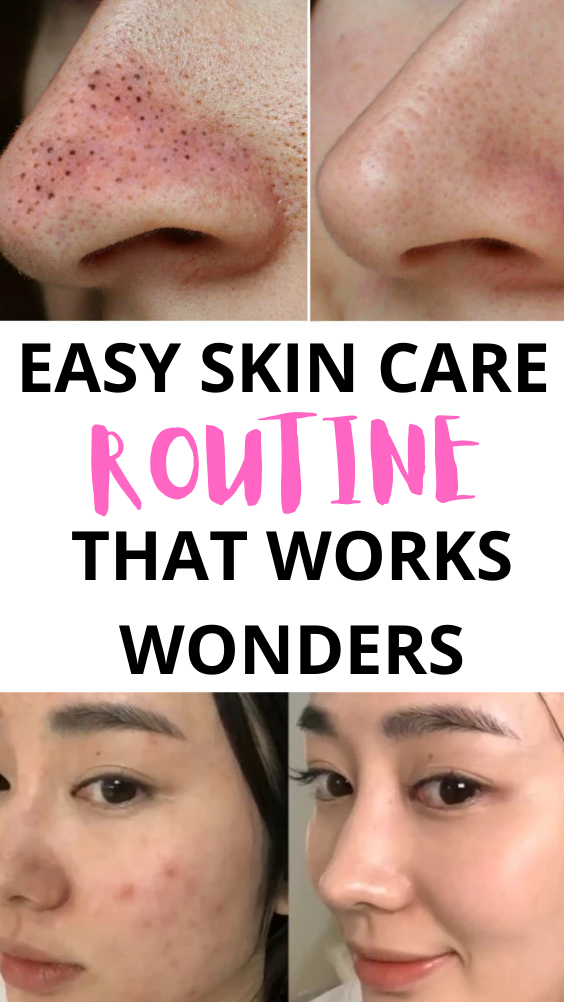Easy Skin Care Routine That Works Wonders!

Having a good skin care routine is something every woman need to do. Now the question is, How can you build a good skin care routine?
Easy Skin Care Routine That Works Wonders!
Today I want you to have a brand new thinking about your skin and know that your skin can look amazing if you do the right things.
Is up to you to work and improve your skin care routine so let’s do our best sistah!
The first thing in order to start your skin care routine the right way is to know your skin type.
What is Your Skin Type?
When you know your skin type, it will be easier to take better care of it.
- Dry skin is flaky, scaly, or rough.
- Oily skin is shiny, greasy, and may have big pores.
- Combination skin is dry in some spots (cheeks) and oily in others (forehead, nose, and chin).
- Sensitive skin may sting, burn, or itch after you use some makeup or other products.
- Normal skin is balanced, clear, and not sensitive.
Now that you know all about the skin types and you’ve picked your right skin type let’s check how to clean your skin.
How to Cleaning Normal/Combo Skin
Please, don’t just grab whatever soap is in the shower or at the sink to wash your face.
Just find skin care that works for you.
Apply a gentle cleanser or soap with your fingertips without scrubbing your face.
Rinse with plenty of warm water, then pat dry.
If your skin dries out or gets oily, try a different cleanser.
Cleaning Dry Skin
For this skin type, use a gentle cleanser that doesn’t have alcohol or fragrances. Those ingredients can dry you out even more. Gently wash your skin, then rinse with plenty of warm water. Don’t use hot water — it removes the natural oils from your face faster. Try exfoliating once a week to get rid of flaky skin cells. It will make your skin look clearer and more even.
Cleaning Oily Skin
Use an oil-free foaming cleanser to wash your face. Rinse with plenty of warm water. You may want to use a toner or astringent after, but be careful because it might irritate your skin. These products can remove extra oil, which makes your face less shiny, and help keep skin clean.
Cleaning Sensitive Skin
Wash your face with a gentle cleanser and rinse with warm water. Don’t rub your skin with a towel — gently pat it dry. Exfoliating may irritate sensitive skin. Try not to use products that have alcohol, soap, acid, or fragrance. Instead, look on the label for calming ingredients like aloe, chamomile, green tea polyphenols, and oats. The fewer ingredients in a product, the happier your face may be.
How to Moisturize Your Skin
You may think you’re too young to need moisturizer — or your skin is too oily — but all skin types need one every day.
Apply it while your skin is still damp from washing or rinsing to help seal in moisture.
If you have acne or your skin is oily, find a moisturizer that’s lightweight and oil-free, so it won’t block your pores.
Do I need to put on Sunscreen?
Your moisturizer may already have sunscreen in it.
But it’s a good idea to use separate protection, too. The sun can damage your skin in only 15 minutes.
Look for a sunscreen that gives broad-spectrum protection with an SPF of at least 30. Wear it every day, even if it’s not sunny and even if it’s cold.
Reapply every 2 hours.
Hope these tips were helpful,


